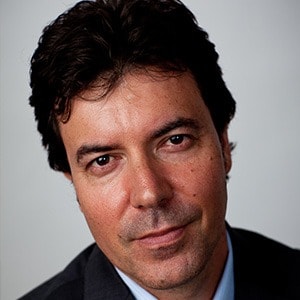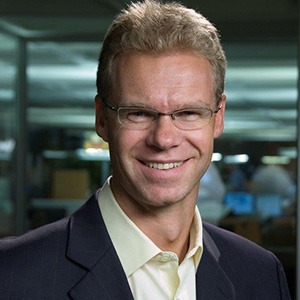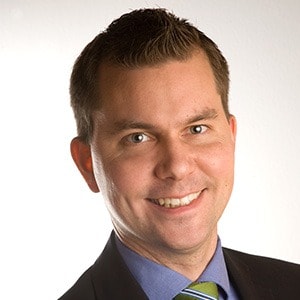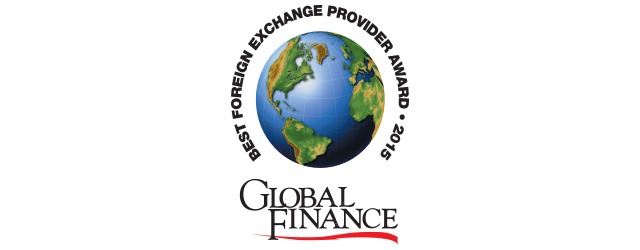
Jump To Section
-
Introduction
-
Awards Winners – THE WORLD’S BEST FOREIGN EXCHANGE PROVIDERS 2015
-
Winners Profile
-
Interviews
RESTORING EQUILIBRIUM
Regulatory uncertainty, technological change and traders behaving badly have collided in a perfect storm for banks’ foreign exchange operations. There are signs, however, that the worst has passed, and the return of more-normal times could be just around the corner. More volatile trading conditions, if sustained, could help to keep the business profitable.
Alain Kamagi, co-founder and managing partner of UNTL Capital and a member of Global Finance’s Panel of Experts for our Foreign Exchange Providers Awards, says: “The FX market has gone through some major changes since the 2008 market crisis. The new regulation, though well-intentioned, has created uncertainty, as the rules are still being written or implemented. Similar to the evolution of the equity market, foreign exchange has been moving quickly into an electronic marketplace, and the negative news has helped make the transition quicker and more pronounced.”
Not all of the changes have been for the worse, he says. “On the positive side, electronic pricing has created better price discovery, more transparency, more competition, tighter spreads and better economies of scale,” Kamagi says. “On a negative note, the evolution of electronic trading has made it more challenging for liquidity providers to analyze the flow and has forced them to evaluate relationships based on management information systems reporting, and less through direct conversation with customers. Expect the next few years to be both exciting and challenging, as the market finds its balance,” he says.
David Gilmore, partner and economist at Foreign Exchange Analytics and also a member of our judging panel, says: “Zero-interest-rate policies in place at many developed-market central banks, reflecting low inflation and low growth, have yielded an unprecedented period of low volatility in foreign exchange and interest rates. This environment has taken a toll on transaction business at major banks globally. In addition, technological innovations have altered the landscape, with systemic or model-driven trading, often away from banks, taking a large slice of the daily volume in FX.”
A confluence of these two developments has undermined the profitability of FX trading at the banks, Gilmore says. However, with the ending of the Federal Reserve’s quantitative easing, and the Fed and the Bank of England both considering when to raise rates, while the European Central Bank moves closer to full-blown QE and the Bank of Japan engages in more QE, the volumes and volatility in the FX market have started to recover, Gilmore says.
Moreover, the volume of FX trading run through computer models appears to be declining, he adds, which may in part reflect greater regulatory scrutiny of high-frequency trading. “My belief is that the FX business largely associated with major banks is recovering rapidly from a depressed state,” Gilmore says. “I am optimistic that as some central banks seek to normalize policies as their economies improve, while others seek to engage in even more unconventional strategies to spur growth, the return of volatility and volumes are probable and would be a healthy development for this sector.”
In our annual World’s Best Foreign Exchange Providers awards, Global Finance has identified the best foreign exchange banks—the ones that best handle the currency hedging and transaction needs of major corporations. We chose the leading foreign exchange banks in 99 countries and nine regions, as well as the best online trading systems; the best firm for foreign exchange research; and winners for fundamental research, technical analysis, currency forecasts, and strategy and hedging.
With input from industry analysts, corporate executives and technology experts, Global Finance has selected the winners based on objective and subjective factors. Our criteria included transaction volume, market share, global coverage, customer service, competitive pricing and technology. Decisions were informed by provider submissions, and with input from our Panel of Experts.
FX Awards Panel of Experts
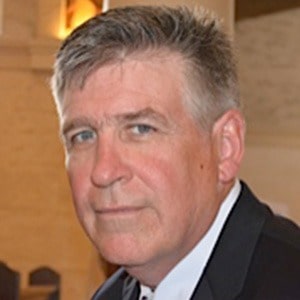 |
David Gilmore is partner and economist at Essex, Connecticut‑based Foreign Exchange Analytics. Prior to founding the FX advisory service for institutional traders in 1994, he spent seven years providing online commentary with MCM/CurrencyWatch and MMSInternational. Gilmore holds an MSc in economics from the London School of Economics and a BA in history from the University of California at Berkeley. |
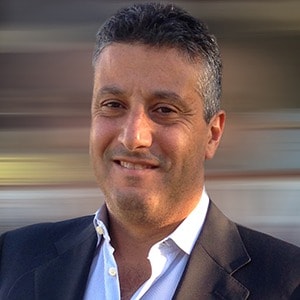 |
Alain Kamagi is co-founder and managing partner at UNTL Capital. He previously was a managing director at HSBC Bank USA, where he assembled a team responsible for cross-selling FX and fixed-income products. Prior to that he held various senior positions at Republic National Bank. Kamagi holds an MBA from Bauer College of Business at the University of Houston, from which he also has a BA in finance. |
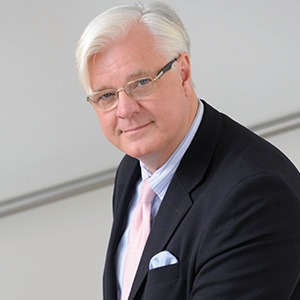 |
Mark Taylor is dean and professor of finance at Warwick Business School at Warwick University in the UK. He is one of the most highly cited economists in the world for his work on exchange rates and international financial markets. Previously, he was a managing director at BlackRock, an economist at the Bank of England, and a senior economist at the International Monetary Fund. He began his career as a trader in London. |
THE WORLD’S BEST FOREIGN EXCHANGE PROVIDERS 2015
Jump To Section
-
Introduction
-
Awards Winners – THE WORLD’S BEST FOREIGN EXCHANGE PROVIDERS 2015
-
Winners Profile
-
Interviews
GLOBAL WINNER |
|
|---|---|
|
Citi |
|
REGIONAL WINNERS |
|
|---|---|
|
North America |
Citi |
|
Western Europe |
Deutsche Bank |
|
Nordic Countries |
Nordea |
|
Central & Eastern Europe |
Société Générale |
|
Latin America |
Citi |
|
Asia-Pacific |
ANZ |
|
Southeast Asia |
DBS |
|
Middle East |
National Bank of Kuwait |
|
Africa |
Standard Bank |
FOREIGN EXCHANGE RESEARCH & ANALYSIS |
|
|---|---|
|
Research |
BNY Mellon |
|
Fundamental Analysis |
Brown Brothers Harriman |
|
Technical Analysis |
BNY Mellon |
|
Strategy/Hedging |
Deutsche Bank |
|
Forecasts |
BNP Paribas |
ONLINE FOREX TRADING SYSTEMS |
|
|---|---|
|
Bank System |
Saxo Bank |
|
Independent |
Thomson Reuters |
|
Retail |
Oanda |
COUNTRY WINNERS |
|
|---|---|
|
Algeria |
Arab Banking Corporation Algeria |
|
Angola |
Standard Bank Angola |
|
Argentina |
Citi |
|
Armenia |
Ameriabank |
|
Australia |
ANZ |
|
Austria |
Bank Austria |
|
Bahrain |
Ahli United Bank |
|
Belarus |
Belarusbank |
|
Belgium |
BNP Paribas Fortis |
|
Botswana |
Stanbic Bank Botswana |
|
Brazil |
Itaú Unibanco |
|
Bulgaria |
UniCredit Bulbank |
|
Canada |
Scotiabank |
|
Chile |
Banco Santander Chile |
|
China |
ICBC |
|
Colombia |
Banco de Bogotá |
|
Costa Rica |
Citi |
|
Cyprus |
Bank of Cyprus |
|
Czech Republic |
Komerční banka |
|
Denmark |
Danske Bank |
|
Ecuador |
Citi |
|
Egypt |
Commercial International Bank |
|
El Salvador |
Citi |
|
Estonia |
SEB Pank |
|
Finland |
Nordea |
|
France |
BNP Paribas |
|
Gambia |
Standard Chartered |
|
Georgia |
TBC Bank |
|
Germany |
Deutsche Bank |
|
Greece |
National Bank of Greece |
|
Guatemala |
Banco Industrial |
|
Honduras |
Citi |
|
Hong Kong |
HSBC |
|
Hungary |
OTP Bank |
|
India |
DBS |
|
Indonesia |
DBS Indonesia |
|
Ireland |
Bank of Ireland |
|
Israel |
Bank Leumi |
|
Italy |
UniCredit |
|
Jamaica |
Scotiabank Jamaica |
|
Japan |
Sumitomo Mitsui Banking |
|
Jordan |
Arab Bank |
|
Kazakhstan |
Halyk Bank |
|
Kenya |
CfC Stanbic Bank |
|
Kuwait |
National Bank of Kuwait |
|
Latvia |
SEB |
|
Lebanon |
BLOM Bank |
|
Lithuania |
SEB |
|
Macedonia |
Komercijalna Banka AD Skopje |
|
Malaysia |
Maybank |
|
Mexico |
BBVA Bancomer |
|
Moldova |
Moldova Agroindbank |
|
Netherlands |
ING |
|
New Zealand |
ANZ |
|
Nigeria |
Stanbic IBTC Bank |
|
Norway |
SEB |
|
Oman |
BankMuscat |
|
Pakistan |
Standard Chartered |
|
Paraguay |
Banco Itaú Paraguay |
|
Peru |
Citi |
|
Philippines |
Security Bank |
|
Poland |
mBank |
|
Portugal |
Banco Santander Totta |
|
Qatar |
Qatar National Bank |
|
Romania |
BRD |
|
Russia |
VTB Capital |
|
Saudi Arabia |
SABB |
|
Sierra Leone |
Standard Chartered |
|
Singapore |
DBS |
|
Slovakia |
ČSOB |
|
Slovenia |
Nova Ljubljanska Banka |
|
South Africa |
Standard Bank |
|
South Korea |
Korea Exchange Bank |
|
Spain |
Santander |
|
Sweden |
SEB |
|
Switzerland |
Credit Suisse |
|
Syria |
Bank of Syria and Overseas |
|
Taiwan |
CTBC Bank |
|
Thailand |
Siam Commercial Bank |
|
Turkey |
Akbank |
|
Ukraine |
Nadra Bank |
|
United Arab Emirates |
Nationl Bank of Abu Dhabi |
|
United Kingdom |
HSBC |
|
United States |
Citi |
|
Honorable Mention |
BNY Mellon |
|
Uruguay |
Citi |
|
Venezuela |
Banco Mercantil |
|
Vietnam |
Sacombank |
|
Zambia |
Stanbic Zambia |
WINNERS PROFILE
Jump To Section
-
Introduction
-
Awards Winners – THE WORLD’S BEST FOREIGN EXCHANGE PROVIDERS 2015
-
Winners Profile
-
Interviews
GLOBAL WINNER
Citi
Citi is present in 100 countries, 68 of which are emerging or frontier markets. As the main global bank serving large multinational corporations, Citi has steadily increased its foreign exchange volume in recent years to become the largest FX bank in the world. Aggressive pricing and innovation are part of the reason for Citi’s growing FX market share. The bank’s new automated renminbi cross-border sweeping structure enables clients to move end-of-day balances from China, Hong Kong and Singapore to London, the center for managing currency risk. The global concentration platform enables customers to integrate renminbi efficiently into their treasury and liquidity operations. The CitiFX Pulse platform for corporations enables multinationals to track cash flow and balance-sheet exposure across their worldwide subsidiaries. This Web-based tool makes it easier for corporations to assess overall risk exposure and implement necessary hedging programs. Another of Citi’s strengths is its ability to handle and advise on large transactions. Its experienced staff, with access to liquidity, is able to price large trades without moving the market. Citi has the expertise to structure complex deals in a wide range of industries. It also has developed systems to manage the extensive documentation required by FX regulations in many countries.
NORTH AMERICA
Citi
Citi is a leading FX bank in both the US and Canada. Customers rate the bank higher than its peers in quality of service. Citi maintains strong relationships with corporate clients and offers customized alternatives to help them meet their financial goals. Its online news service, CitiFX Wire, offers commentary and reports from traders, strategists, technical analysts and economists.
The Citi Velocity 2.0 platform provides live interbank quotations for the spot market, forwards, swaps, algorithmic trading and FX options. The Web-based portal is used internally by financial markets staff of the bank, as well as by its customers around the world. It offers pre-trade analytics and trading tools for FX and fixed-income markets. Citi offers competitive prices in more than 130 currency pairs, and an extensive global network of experienced professionals.
WESTERN EUROPE
Deutsche Bank
Germany’s largest bank has long been a leader in the global FX market, with particular strength in currency derivatives. Its success in this area has been driven by investment in technology, including the expansion and upgrading of trading systems in recent years. As a flood of money moved back into emerging markets in 2014, Deutsche Bank’s investments in EM trading solutions paid off. The bank enjoyed a significant performance edge in providing currency derivatives in the Chinese market.
Deutsche Bank introduced its Rapid pricing system globally in 2014. The application programming interface (API) enables clients to aggregate spot liquidity from multiple providers to execute a large ticket through a “stack sweep,” a series of smaller trades in rapid succession. Rapid can handle 150,000 client trades per second.
NORDIC COUNTRIES
Nordea
Nordea is the largest financial services group in the Nordic countries, with 800 branches, as well as online and mobile trading platforms. Its e-markets platform offers FX prices and trading and can be customized to offer access to multibank platforms.
Nordea also offers an API solution that enables corporations to automate their FX hedging and cash management processes. The bank is a leading liquidity provider in the currencies of Denmark, Finland, Norway and Sweden. It also is active in Estonia, Latvia, Lithuania and Russia.
The Nordic bank offers a wide range of foriegn exchange derivatives, including nondeliverable forwards and strategic and exotic options. It provides risk-management solutions to corporations of all sizes.
CENTRAL & EASTERN EUROPE
Société Générale
Société Générale has a 3,800-branch network in the CEE region. The bank is a leading dealer in many regional currencies and government bonds, as well as hard-currency bonds from local issuers. It is a primary dealer in Poland, the Czech Republic, Romania and Russia.
SG’s extensive regional network gives it access to local risk, assets and market liquidity. With the capability to handle large transactions, SG offers currency-risk management solutions tailored to specific mergers and acquisitions. The bank specializes in illiquid frontier currencies and is able to offer onshore pricing and settlement in highly exotic currencies.
LATIN AMERICA
Citi
Citi is the top FX bank in Latin America, with an overall market share of about 20%. Its presence in 23 countries in the region gives it the largest geographic reach of any bank. Its electronic platforms have given local customers access to online FX services and global financial markets. Citi is the leading FX market participant in many of the countries in which it operates in the region. In Argentina, where it has operated for 100 years, Citi serves hundreds of top-tier corporations, as well as local and nonresident investors. In Peru, where it was established in 1920, Citi is the leading market maker in FX, with a focus on large corporations and institutional investors. In Colombia, where it has a nearly 30% market share, it serves offshore investors who have discovered the market in recent years, as well as major corporations.
ASIA-PACIFIC
ANZ
With a presence in 29 countries in the Asia-Pacific region, ANZ’s reach extends well beyond its franchises in Australia and New Zealand. ANZ has introduced renminbi trade capability in China, Hong Kong, Singapore and Taiwan, as well as Australia. This enables the bank’s customers in these markets to conduct business in local currency with their Chinese trading partners.
ANZ provides FX services in upward of 140 currency pairs, including deliverable and nondeliverable currencies. The bank gets high scores for customer satisfaction and is able to manage large currency transactions smoothly, with reliable confirmations and settlements. ANZ serves a wide range of clients, including investors, financial institutions, large national and multinational companies, smaller businesses and private banking customers. The bank continues to update its technology and recently introduced a new version of its FX Online dealing platform.
SOUTHEAST ASIA
DBS
DBS has the biggest FX team in Singapore among local banks, and its currency-trading volume has increased rapidly in recent years. It has the largest Singapore-dollar trading book globally and is a leading regional provider of treasury products. The bank’s FX and structuring desk offers risk-management solutions to large corporations.
DBS is an active FX market maker in neighboring Indonesia, where a fast-growing economy is creating demand for more-sophisticated products and links to global markets. The bank has also been a pioneer in driving the development of an offshore platform for the Vietnamese dong. In Hong Kong, DBS is a major participant in the Hong Kong dollar and offshore renminbi markets. It is also a major interbank market participant in China and was among the first group of foreign banks approved to operate in the Shanghai free-trade zone.
MIDDLE EAST
National Bank of Kuwait
National Bank of Kuwait deals in more than 80 currencies and outperforms competitors in corporate customer satisfaction. The bank continues to strengthen its position in Kuwait’s growing Islamic banking sector with its majority stake in Boubyan Bank. NBK has more than 180 branches in 17 countries, and it offers a comprehensive range of products. It has streamlined processes across countries, business lines and services to improve productivity, cut costs and facilitate growth. NBK is focusing its expansion on high-growth markets in Gulf Cooperation Council countries, where it currently operates in Abu Dhabi and Bahrain, as well as the cities of Dubai and Jeddah. It is a market maker in all GCC currencies. NBK also operates in Egypt, Iraq, Jordan and Lebanon.
AFRICA
Standard Bank
Standard Bank, the largest African bank by assets, is the leading liquidity provider for African currencies. The South Africa-based bank provides FX pricing in 41 of the 54 countries in Africa. Standard Bank is the leading market maker in South Africa and Nigeria, the two largest markets in sub-Saharan Africa. It is also the largest FX trader in Kenya.
The bank offers exchange control advisory and compliance services that reflect a deep understanding of local markets. Its research team covers 24 economies and their financial markets in Africa. Standard Bank is the first African bank to offer a single global FX platform with live streaming prices. It is a significant options market maker in African currencies.
ICBC, which owns a 20% stake in Standard Bank, acquired 60% of the South African bank’s global markets subsidiary in London in 2014.
RESEARCH
BNY Mellon
BNY Mellon, the world’s largest custodian bank, offers FX products and support in most of the world’s currencies, with a special focus on emerging markets. With $28.5 trillion in assets under custody and administration, the bank serves a wide variety of clients. It offers an extensive range of dealing vehicles, strategy products and e-commerce platforms.
BNY Mellon has established Pittsburgh and Hong Kong as its centers for trading restricted markets. The bank has approximately 500 professionals serving FX clients out of 10 locations worldwide. It opened an FX office in Singapore in 2014, in addition to a new trading floor in New York.
The bank’s foreign exchange volumes continue to grow as it invests in its electronic trading platform. The bank also has an extensive global payments infrastructure, which enables clients to send payments in more than 125 currencies. It offers daily FX commentary and cross-border flow analysis tools.
FUNDAMENTAL ANALYSIS
Brown Brothers Harriman
Brown Brothers Harriman, the largest private bank in the US, is a leading FX provider to global investment managers. Its currency strategy and research products offer comprehensive top-down analysis that combines fundamental, geopolitical and technical factors. BBH focuses on developing strong customer relationships and providing effective execution of FX trades.
In its latest quarterly FX outlook, BBH says that with volatility increasing, asset managers will need to keep a closer eye on currency fluctuations than they have in the recent past. Anticipation of interest rate changes is the main force shaping the investment climate, the bank says. The US and the UK could raise rates in 2015, BBH says, while Japan and the eurozone are still using unorthodox policies to support their economies.
TECHNICAL ANALYSIS
BNY Mellon
BNY Mellon’s strategy team offers short- and long-term analyses of world economies and markets. One of its most popular strategy offerings is its global multi-asset capital flow product, iFlow, which enables clients to study data and gain insights into cross-border investment activity. Through capital flow and market trend analyses of global investment activity, clients are able to make better-informed investment decisions.
The iFlow product tracks aggregate daily investor activity across currencies, equities and bonds in developed and emerging markets. Historical charts with trend lines, trading signals and data correlations are available through BNY Mellon’s interactive website. The iFlow Metrics models incorporate flow and pattern-recognition components to help users navigate volatile markets.
STRATEGY/HEDGING
Deutsche Bank
Deutsche Bank is the leading bank in currency derivatives and has upgraded its advanced trading systems to reinforce its position. With an emphasis on providing quick and flexible trading opportunities for its clients, the bank has improved its risk-management functionality. One system alerts clients when to exercise or restructure derivatives most profitably.
Since emerging markets currencies tend to appreciate slowly and depreciate quickly during economic crises, Deutsche Bank has developed a hedging strategy that varies the width of collars based on the perception of risk. When there is low risk in the market, the collar is wider to allow for normal trading with protection against tail risk. When risk is higher, a narrower collar hedges risk more closely.
FORECASTS
BNP Paribas
The French bank, which has its global headquarters in London, was among the most accurate forecasters of the euro’s moves against the dollar in 2014. BNP Paribas expects the European Central Bank to introduce quantitative easing early in 2015. The ECB needs to act aggressively to avoid a further slump in the eurozone’s inflation expectations, BNP Paribas says. Market-based measures of inflation expectations are slipping again, and the French bank says it remains broadly bearish on the euro. Meanwhile, US economic data have remained solid enough to support expectations of a Federal Reserve tightening by the middle of 2015, BNP Paribas says. The bank also takes market positioning and chart formations into account in making forecasts.
BANK SYSTEM
Saxo Bank
Saxo Bank, an online global trading and investment specialist, is a Danish-regulated bank with 25 offices worldwide. An early innovator of online FX trading, Saxo Bank is as much a technology company as a trader of FX and other asset classes. There are currently 115 active white-label partners using its technology, including 20 banks with cross-border activities.
In 2014, Saxo Bank introduced TradingFloor.com, its first major platform to offer multi-asset social trading. Liquidity services tailored to individual client needs are available through Saxo Prime. SaxoTrader is a suite of platforms enabling users to access their trading accounts from a wide range of electronic channels. Saxo Bank offers 184 FX crosses, as well as FX options, futures and contracts for difference, where settlements are made in cash instead of physical delivery.
INDEPENDENT SYSTEM
Thomson Reuters
Thomson Reuters remains the leader in the multibank and independent FX platform market. In 2014, Thomson Reuters introduced a new platform called FX Trading, which is a convergence of its FX trading capabilities with Eikon, its market-data desktop. Instant messaging has become a critical part of price discovery, but such services are usually allied with a particular company. Thomson Reuters uses open standards to connect financial market participants through a secure messaging system.
Thomson Reuters recently introduced a fully automated FX trading platform for Nigeria, which it plans to expand into an enabling platform for Africa to increase efficiency and liquidity in its markets. Thomson Reuters also has established a swap execution facility to provide a consistent workflow for trading regulated FX products, including FX options and nondeliverable forwards. Meanwhile, FXall, which offers bank-to-client trading and workflow solutions, has more than 100 provider banks and continues to expand.
RETAIL SYSTEM
Oanda
Toronto-based Oanda introduced its fxTrade online trading system in 2001, after being formed six years earlier to provide free currency-conversion tools and historical FX data. Today the company also provides benchmark exchange rates for corporations, auditing firms and global banks. In recent months, fxTrade has set new records for FX trading volume and new client accounts. The fxTrade platform introduced a number of firsts to the market, including immediate execution, instant settlement and interest calculated by the second. Oanda uses the MetaTrader platform, which has mobile applications, to meet the needs of its clients who use automated trading strategies.
INTERVIEW WITH THE WINNERS
Jump To Section
-
Introduction
-
Awards Winners – THE WORLD’S BEST FOREIGN EXCHANGE PROVIDERS 2015
-
Winners Profile
-
Interviews
